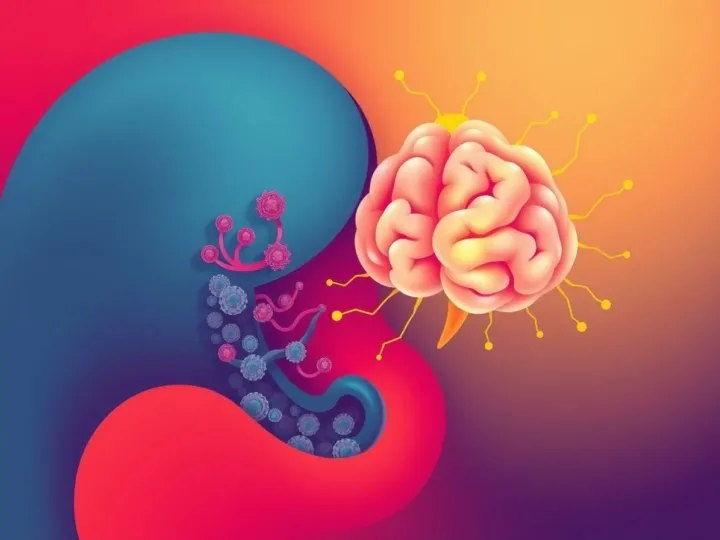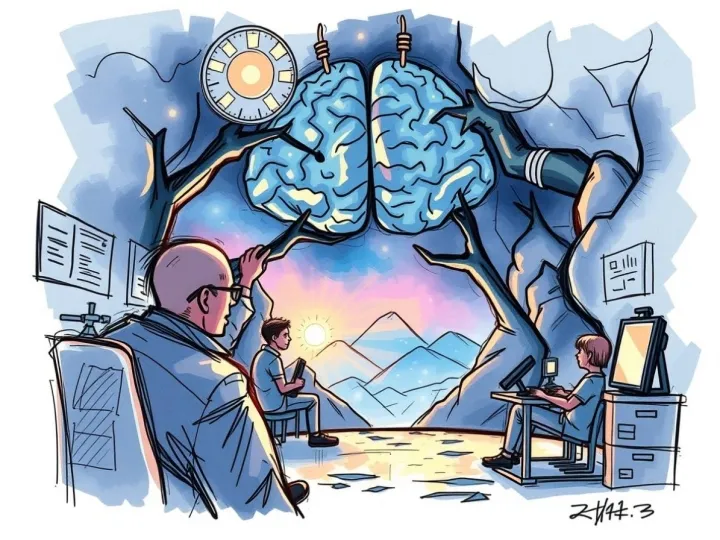For decades, obesity was framed as a problem of lifestyle and willpower - a behavioral issue to be solved through discipline, diet, and exercise. Yet beneath that cultural narrative lies another story, one now unfolding at the intersection of genetics, neuroscience, and precision medicine. In a landmark review published in Obesity and Endocrinology (2025), French researchers Sarah Chalopin, Emilie Guillon, Pauline Faucher, Béatrice Dubern, Karine Clément, and Christine Poitou describe how rare genetic obesities are transforming our understanding of appetite, metabolism, and care.
Their work, "From Genes to Care: The Expanding Therapeutic Horizon in Rare Genetic Obesities," traces a revolution built not on moral advice but molecular insight. These conditions - often caused by single-gene mutations affecting the hypothalamus - disrupt the brain's ability to register satiety. The result is severe, early-onset obesity accompanied by hyperphagia, hormonal imbalance, and neurodevelopmental challenges. Behavioral interventions frequently fail, and even bariatric surgery can be ineffective or contraindicated. But as the authors show, the new era of treatment is not about control - it's about communication: restoring the dialogue between body and brain.
The Leptin - Melanocortin Pathway: The Logic of Hunger
At the center of this transformation lies the leptin - melanocortin axis, the neural highway that connects fat tissue to the brain. Leptin, secreted by adipose cells, signals fullness to the hypothalamus. When the pathway functions correctly, it keeps energy balance intact. But when genes such as LEP, LEPR, POMC, PCSK1, or MC4R malfunction, the circuit collapses. Hunger becomes a constant signal with no "off" switch.
Enter setmelanotide, a selective MC4R agonist that bypasses upstream defects and reactivates the satiety circuit. Clinical trials show remarkable results: in patients with POMC or PCSK1 deficiency, average weight loss reached 25%, with dramatic reductions in food-seeking behavior. Long-term data suggest sustained benefits over seven years of continuous therapy. Approved in Europe and North America, setmelanotide is now authorized for children as young as two years old - a rare example of early-life intervention in a metabolic disorder once deemed untreatable.
Beyond monogenic obesity, setmelanotide is being tested in Bardet-Biedl syndrome and other ciliopathies where hypothalamic signaling is impaired. Even more ambitious are ongoing trials in variants like SH2B1 and SRC-1, suggesting that this mechanism may one day apply across a wider spectrum of "neuro-obesities."
Beyond Weight Loss Drugs
Running parallel to the MC4R revolution is another major pathway: the incretin system. GLP-1 receptor agonists, including liraglutide and semaglutide, already changed the landscape of type 2 diabetes and common obesity. Their effects on the brain's appetite centers are now being explored in rare and syndromic conditions such as Prader - Willi and Alström syndromes.
The results, while early, are encouraging. Some patients show meaningful weight reduction, improved glucose tolerance, and decreased hyperphagia. Others experience little change, reminding clinicians that genetics still dictate much of the response. The next generation of incretin drugs - dual and triple agonists like tirzepatide and retatrutide - are pushing weight reduction into the 20 - 30% range and could eventually merge with genetic therapies to address both metabolic and neurological aspects of obesity.
Re-engineering Care in Prader - Willi Syndrome
Among syndromic obesities, Prader - Willi syndrome (PWS) remains the most intensively studied. New treatments are targeting its complex blend of metabolic and behavioral symptoms. Oxytocin and its analog carbetocin are being tested for their impact on feeding behavior and social cognition, while diazoxide choline extended-release (Vykat XR) became, in March 2025, the first FDA-approved medication specifically for hyperphagia in PWS. Neuromodulation trials using vagus nerve stimulation hint at the next frontier: directly regulating neural circuits of impulse and reward.
These innovations are not about quick fixes but about restoring regulatory harmony. They reframe obesity from a moral failure to a systems failure - and they demand equally systemic care.
The Ethics of Lifelong Treatment
As these drugs move from trials into real life, new questions emerge. For many patients, discontinuation leads to weight regain, implying that treatment may be lifelong. How do we begin chronic pharmacotherapy in a child as young as two? What are the developmental, psychological, and ethical implications?
Access is another fault line. In Europe and North America, reimbursement remains inconsistent, leaving families to navigate high costs and unequal availability. Without coordinated national and international policies, precision medicine risks deepening, not resolving, existing health inequities.
A Shift in Paradigm
The implications reach far beyond rare disease. By tracing obesity back to its neurobiological roots, these discoveries challenge a century of stigma. They reveal that hunger is not a weakness to be disciplined but a message to be decoded - one that science is finally beginning to understand.
The future of care, as Chalopin and colleagues conclude, will not depend on a single molecule but on integration: combining pharmacological precision with psychological, nutritional, and social support. In this vision, medicine no longer blames; it listens. The body is not a battleground but an intelligent system waiting for the right signal.






